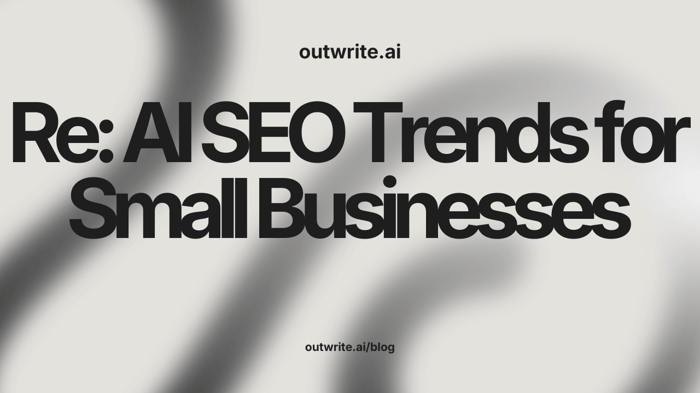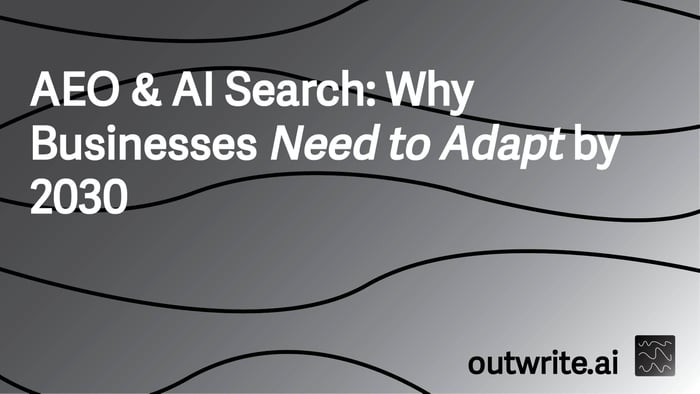Table of Contents
- AI-Driven Search Optimization
- Content Creation and Optimization
- Local SEO and Reputation Management
- Technical SEO with AI Tools
- Voice and Generative Search Optimization
- User Intent-Focused Content
- AI-Powered Automation for SEO
- Mobile Optimization and User Experience
- Measuring ROI and Performance
- Conclusion
- FAQs
AI-Driven Search Optimization
AI significantly reshapes how search engines interpret and rank content. For small businesses, understanding these changes is crucial for online visibility. Google’s algorithms, like RankBrain and BERT, prioritize user intent and content relevance. This shift means traditional keyword stuffing is less effective. Instead, focus on providing valuable, comprehensive answers to user queries.
The adoption of AI in SEO is widespread. SeoProfy reports that 86% of SEO professionals have integrated AI into their strategies. Furthermore, 65% of businesses report improved SEO results due to AI integration. This highlights AI's role in refining search strategies and delivering better outcomes.
AI helps small businesses adapt to search engine evolution. It allows for more nuanced understanding of search queries, moving beyond simple keywords. Businesses can use AI to analyze complex data patterns, predicting what users want before they explicitly type it. This proactive approach helps content rank higher.
The broader AI market is growing rapidly. The US AI market expects to reach nearly $300 billion by 2026. This growth facilitates increased AI tool development, making advanced AI solutions more accessible and affordable for small businesses. These tools help small businesses compete with larger enterprises.
Understanding AI Search Algorithms
Google's AI algorithms, such as RankBrain and BERT, analyze context and meaning in search queries. This moves beyond exact keyword matches. For small businesses, this means content must be semantically rich and truly answer user questions. AI helps analyze competitor content and identify gaps in information.
- Semantic Search: AI understands the intent behind queries, not just the words. Your content should cover topics comprehensively, addressing related questions.
- Contextual Relevance: Algorithms consider the user's location, search history, and device. Content must be relevant to these contextual factors.
- Natural Language Processing (NLP): AI uses NLP to process and understand human language. Write content that sounds natural and conversational.
- Entity Recognition: AI identifies key entities (people, places, things) in content. Ensure your content clearly defines and relates these entities.

Content Creation and Optimization
AI transforms how small businesses create and optimize content for search engines. AI tools assist with keyword research, topic generation, and even drafting content. This automation frees up time for strategic planning and human oversight. The goal is to produce high-quality, user-centric content efficiently.
Content marketing proves highly effective for small businesses. 72% of small businesses cite content marketing as their most effective SEO strategy. Additionally, SEO blogs generate 67% more leads than non-optimized content. AI helps ensure this content is optimized for current search algorithms.
AI-assisted content creation means focusing on user intent. Instead of just targeting keywords, businesses now create content that answers specific questions and solves problems. This approach aligns with how AI-driven search engines evaluate content quality and relevance. Tools like outwrite.ai help businesses craft this type of content.
For small businesses, AI tools can automate many content tasks. This includes generating outlines, suggesting relevant topics, and optimizing existing content for new search trends. This automation reduces manual effort and improves content quality. It helps businesses keep pace with the demands of modern SEO.
AI-Assisted Content Strategies
AI tools help refine content strategies by identifying gaps and opportunities. They analyze what competitors rank for and suggest unique angles. This leads to more targeted and effective content.
- Topic Generation: AI identifies trending topics and user questions relevant to your niche. This ensures your content addresses current interests.
- Keyword Research: AI goes beyond basic keyword suggestions, finding long-tail keywords and semantic variations. This helps capture diverse search queries.
- Content Outlining: AI generates detailed outlines, ensuring comprehensive coverage of a topic. This saves time and structures content effectively.
- Drafting and Optimization: AI assists in drafting sections and optimizing content for readability and SEO factors. This improves content quality and search performance.
Local SEO and Reputation Management
Local SEO remains a critical trend for small businesses in 2025, especially with AI's influence. AI-driven search prioritizes local relevance more than ever. Optimizing for local searches helps businesses connect with nearby customers. This directly translates into offline sales and increased foot traffic.
Local SEO yields significant results. Small businesses focusing on local SEO see a 40% higher click-through rate. Furthermore, 78% of mobile local searches result in offline purchases within 24 hours. These statistics underscore the importance of local visibility.
The Local Authority Framework is crucial, focusing on specificity. Instead of generic local content, businesses should create hyper-local content. For example, "What Portland Homeowners Need to Know About Permit Requirements" performs better than broad contractor topics. This specific content demonstrates local expertise.
Reputation management, particularly customer reviews, plays a larger role. Integrating customer reviews that include service-specific keywords boosts SEO ranking. Responding to reviews with keyword-rich replies also helps. This strategy benefits from AI-generated review summaries on Google.
Key Local SEO Strategies for 2025
Small businesses must prioritize local SEO and reputation management. This involves optimizing their online presence for local search queries and managing customer feedback effectively.
- Google Business Profile Optimization: Fully optimize your Google Business Profile with accurate information, photos, and services. This is the foundation of local SEO.
- Hyper-Local Content Creation: Develop content that addresses specific local needs, events, or regulations. This establishes local authority.
- Review Management: Actively encourage customer reviews and respond thoughtfully. Prompt responses show engagement and improve local rankings.
- Local Citations: Ensure consistent business information across all online directories. This builds trust and visibility for local searches.

Technical SEO with AI Tools
Technical SEO ensures websites are crawlable, indexable, and perform well. AI tools significantly streamline this process for small businesses. They can rapidly diagnose issues that impact search rankings. This includes identifying slow page speeds, unoptimized images, and mobile incompatibility.
While AI excels at diagnosing, human expertise remains vital for implementation. AI provides the insights, but a human must apply the fixes. This combination maximizes the impact of technical SEO efforts. Small businesses can use AI to prioritize the most critical technical issues.
75% of marketers use AI to reduce manual SEO tasks, including technical audits. This automation saves time and resources. It allows small businesses to conduct regular, thorough technical checks without needing a large in-house SEO team. This ensures their websites stay healthy and performant.
AI-powered technical SEO tools offer a competitive edge. They provide detailed reports and actionable recommendations. This helps small businesses maintain a strong technical foundation for their online presence. Regular audits prevent minor issues from becoming major ranking problems.
AI-Powered Technical SEO Checklist
Using AI for technical SEO involves a systematic approach to identify and resolve website issues. This ensures search engines can easily access and understand your content.
- Site Speed Analysis: AI tools pinpoint elements slowing down your website. Faster sites improve user experience and search rankings.
- Crawlability and Indexability Checks: AI identifies pages that search engines struggle to crawl or index. This ensures all important content is visible.
- Mobile Responsiveness Audits: AI verifies that your site displays correctly on all devices. Mobile-friendliness is a key ranking factor.
- Broken Link Detection: AI quickly finds and reports broken internal and external links. Fixing these improves user experience and SEO.
- Schema Markup Validation: AI checks for correct implementation of structured data. This helps search engines understand your content better.
Voice and Generative Search Optimization
Voice search and generative AI results (like Google's Search Generative Experience, SGE) are growing trends for 2025. Small businesses must adapt their SEO strategies to these conversational search methods. Optimizing for natural language queries helps capture visibility in these new search formats.
Zero-click results, where users get answers directly in the search results without clicking, are becoming more common. This means content needs to be concise and answer questions directly. AI helps identify common questions and craft answers suitable for these snippets. This ensures your business appears in these prominent positions.
Optimizing for voice search means using natural, conversational phrases. People speak differently than they type. Small businesses should focus on long-tail keywords that mimic spoken questions. This helps capture queries from devices like smart speakers and mobile assistants.
The rise of generative AI in search means providing comprehensive, authoritative answers. AI models synthesize information from multiple sources. Your content needs to be a trusted source of information. Using FAQ schemas helps structure content for these AI-driven answers.
Strategies for Voice and Generative Search
To rank in voice and generative search, focus on natural language and direct answers. This involves understanding how users speak and what information AI prioritizes.
- Conversational Keywords: Target long-tail keywords that sound like spoken questions. For example, "What is the best plumber near me?"
- Direct Answers: Provide clear, concise answers to common questions. This helps your content get pulled into featured snippets and SGE results.
- FAQ Schema Markup: Implement FAQ schema to explicitly tell search engines about your questions and answers. This improves visibility in AI-generated summaries.
- Structured Data: Use other schema types (e.g., HowTo, Product) to provide structured information. This makes it easier for AI to understand your content.

User Intent-Focused Content
The shift from exact-match keywords to user intent-driven content is a major AI SEO trend. AI's ability to understand natural language means SEO success demands answering detailed user questions. This requires providing experiential content developed with subject matter experts (SMEs).
WordStream highlights this shift, emphasizing the need for content that truly addresses user needs. Small businesses must move beyond simply including keywords. They need to understand the underlying reason behind a search query. This leads to more relevant and valuable content.
Creating content that focuses on user intent involves deep research into your audience. What problems do they face? What questions do they ask? AI tools can help analyze forums, social media, and search queries to uncover these insights. This ensures your content directly speaks to your target audience.
Experiential content, often developed with SMEs, builds trust and authority. When your content reflects real-world experience and deep knowledge, it stands out. This type of content is highly valued by both users and AI algorithms. It positions your small business as a credible source of information.
Developing Intent-Driven Content
To create content that aligns with user intent, small businesses should focus on understanding their audience's needs and providing comprehensive, trustworthy answers.
- Audience Research: Use AI tools to analyze customer feedback, search console data, and competitor content. Understand what your audience truly seeks.
- Problem-Solution Approach: Frame your content around common problems your audience faces and offer clear solutions. This adds direct value.
- Expert Contributions: Involve internal experts or industry professionals to provide unique insights. This enhances content authority and credibility.
- Diverse Content Formats: Offer information in various formats (e.g., guides, FAQs, case studies, videos). Different users prefer different consumption methods.
AI-Powered Automation for SEO
AI-powered automation is a game-changer for small businesses in SEO. It streamlines repetitive tasks, allowing teams to focus on strategy and creativity. This includes automating keyword research, meta-tag optimization, and even content generation. The efficiency gains are substantial.
75% of marketers use AI to reduce manual SEO tasks. This statistic underscores the widespread adoption and benefits of automation. Small businesses often have limited resources, making automation particularly valuable. It helps them achieve more with less.
The best AI SEO tools for small businesses combine powerful automation with simple interfaces and affordable pricing. These tools enable local businesses to compete effectively. They help manage complex SEO processes without requiring extensive technical knowledge. Merchynt notes that these tools are essential for businesses navigating changes like Google's Search Generative Experience (SGE).
Automation extends beyond basic tasks. AI can monitor rankings, analyze competitor strategies, and even predict future trends. This proactive approach helps small businesses stay ahead. It ensures their SEO strategy remains agile and responsive to market changes. Tools like outwrite.ai are positioned to help SMBs with these automation needs.
Benefits of AI Automation in SEO
AI automation brings several advantages to small business SEO, from increased efficiency to better decision-making.
- Time Savings: Automating tasks like keyword research and content audits frees up valuable time. This allows focus on strategic initiatives.
- Improved Accuracy: AI processes large datasets without human error. This leads to more accurate insights and optimizations.
- Scalability: Small businesses can scale their SEO efforts without proportional increases in staff. AI handles the heavy lifting.
- Competitive Analysis: AI tools continuously monitor competitor strategies and identify opportunities. This helps maintain a competitive edge.
- Personalization: AI can help tailor content and user experiences based on individual user behavior. This improves engagement and conversion rates.

Mobile Optimization and User Experience
Mobile optimization remains critical for SEO in 2025. With a majority of global searches originating from mobile devices, a seamless mobile experience is non-negotiable. AI assists in optimizing websites for various screen sizes and ensuring fast loading times. This directly impacts user satisfaction and search rankings.
60% of global searches come from mobile devices. This dominance means mobile-first indexing is standard. Google primarily uses the mobile version of a website for indexing and ranking. Small businesses must ensure their sites are fully responsive and perform well on mobile.
Mobile-optimized sites see significant conversion boosts. They achieve 32% higher conversion rates. This shows that a good mobile experience not only helps with SEO but also directly impacts business revenue. AI tools can help identify and fix mobile-specific issues quickly.
User experience (UX) is a core component of SEO. Mobile UX includes factors like page load speed, ease of navigation, and content readability on small screens. AI can analyze user behavior on mobile devices, providing insights to improve these aspects. This leads to lower bounce rates and higher engagement.
Elements of Mobile SEO in 2025
Effective mobile optimization requires a multi-faceted approach, focusing on speed, responsiveness, and user-friendly design.
- Responsive Design: Ensure your website adapts automatically to any screen size. This provides a consistent experience across devices.
- Fast Loading Speed: Optimize images, code, and server responses to ensure quick page loads on mobile networks.
- Easy Navigation: Design clear, intuitive navigation menus for mobile users. Avoid cluttered interfaces.
- Readability: Use appropriate font sizes and sufficient line spacing for comfortable reading on small screens.
- Touch-Friendly Elements: Ensure buttons and links are large enough and spaced adequately for touch interaction.
Measuring ROI and Performance
For small businesses, demonstrating the return on investment (ROI) of SEO efforts is crucial. AI tools provide advanced analytics and reporting capabilities, making it easier to track performance. This helps businesses understand what strategies work and where to allocate resources effectively.
Small businesses investing in SEO see a strong return. They achieve an average ROI of 400% within two years. This significant return justifies the investment in AI-driven SEO strategies. AI helps identify the specific factors contributing to this growth.
AI-powered analytics go beyond basic traffic metrics. They can track user journeys, conversion paths, and the impact of individual content pieces. This granular data allows for more informed decision-making. Small businesses can refine their strategies based on real performance data.
Regular performance reviews are essential. AI tools can generate automated reports, highlighting key trends and areas for improvement. This continuous feedback loop helps optimize SEO strategies over time. It ensures that resources are always directed towards the most impactful activities.
Key Performance Indicators (KPIs) for AI SEO
Tracking the right KPIs helps small businesses measure the effectiveness of their AI SEO strategies and understand their ROI.
| KPI | Description | AI's Role | Impact on Business |
|---|---|---|---|
| Organic Traffic | Number of visitors from search engines. | Identifies ranking opportunities, optimizes content for visibility. | Increased brand awareness and potential customers. |
| Conversion Rate | Percentage of visitors completing a desired action (e.g., purchase, lead form). | Analyzes user behavior, suggests UX improvements, personalizes content. | Direct revenue growth and lead generation. |
| Keyword Rankings | Position of target keywords in search results. | Tracks keyword performance, identifies new keyword opportunities. | Improved visibility for specific search queries. |
| Local Search Visibility | Presence in local map packs and local search results. | Optimizes Google Business Profile, monitors local reviews. | Increased local foot traffic and inquiries. |
| Page Load Speed | Time it takes for a page to fully load. | Diagnoses technical issues, recommends optimization. | Better user experience, lower bounce rates, improved rankings. |

Conclusion
The landscape of SEO for small businesses in 2025 is undeniably shaped by AI. Integrating AI into SEO strategies is no longer optional; it is a necessity for maintaining online visibility and competitive advantage. From AI-driven search optimization and content creation to hyper-local strategies and technical audits, AI offers powerful tools to streamline processes and enhance results. Small businesses that embrace these trends, focusing on user intent, mobile experience, and measurable ROI, will find themselves well-positioned for growth.
The future of SEO is intelligent, automated, and deeply connected to understanding human search behavior through AI. Businesses that adapt will thrive in this evolving digital environment.
By Aidan Buckley — Published November 7, 2025





